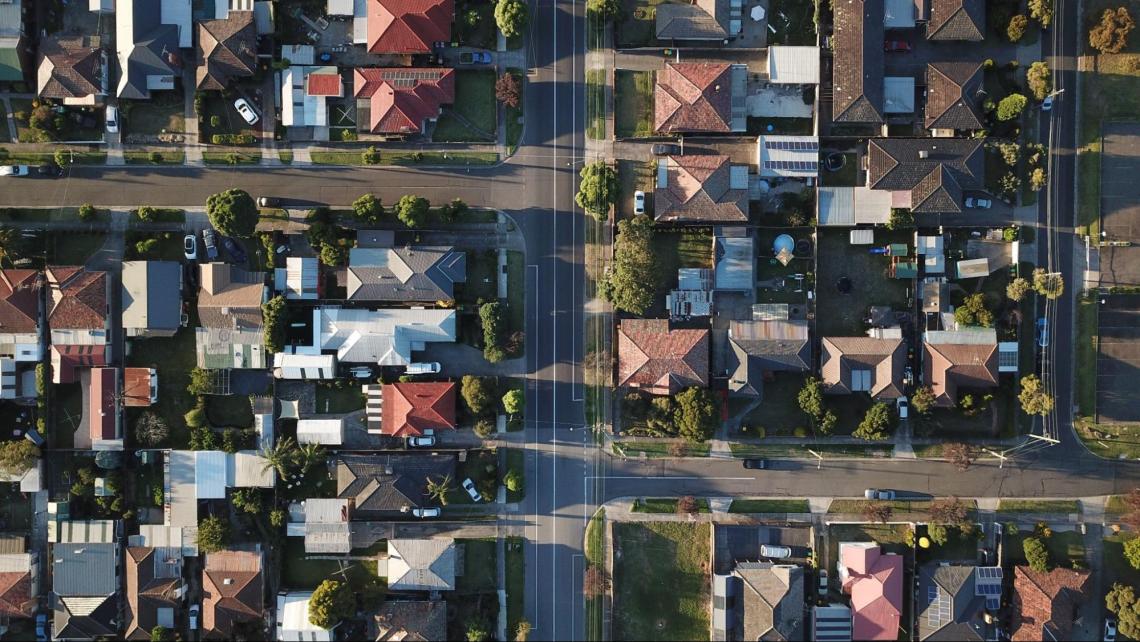Nonconforming Mortgage
A house loan that does not comply with GSE regulations and, therefore, cannot be transferred to organizations.
A nonconforming mortgage is a house loan that does not comply with GSE regulations and, therefore, cannot be transferred to organizations such as Fannie Mae or Freddie Mac.

A government-owned company known as a government-sponsored enterprise (GSE) distributes loans to different American industries. They make it easier for everyone to get into debt. The three GSEs located in the US are:
- Government National Mortgage Corporation (Freddie Mac)
- Association for National Mortgages, Federal (Fannie Mae)
- National Mortgage Association for the Government (Ginnie Mae)
Mortgages that don't comply with regulations aren't terrible loans because they're dangerous or unduly complicated. Instead, financial institutions reject them because they are more difficult to sell and do not follow GSE criteria.
Banks will often demand a higher interest rate for a nonconforming loan because of this.
The three GSEs mentioned above were established to efficiently expand the flow of debt surrounding the housing market.
Compared to conforming mortgages, these loans frequently have higher interest rates.
Jumbo mortgages, or loans larger than the conforming loan limit, are categorized as nonconforming loans.
Besides the loan size, mortgages may become nonconforming based on a borrower's loan-to-value ratio (down payment size), debt-to-income ratio, credit score and history, and documentation requirements.
Understanding Nonconforming Mortgages
Now you might ask, "How do nonconforming mortgages work?" First, banks typically write the bulk of mortgages, which Fannie Mae and Freddie Mac frequently pool together in GSE portfolios.

To be more precise, Fannie Mae and Freddie Mac buy mortgage loans from the banks, bundle them into mortgage-backed securities, and then sell the securities on the secondary market.
Banks utilize the proceeds from the sale of GSE mortgages to finance new loans at the current rate. However, Fannie Mae and Freddie Mac cannot purchase any mortgage securities due to government regulations and restrictions they must follow.
For instance, the loans bought must be risk-free. Thus, conforming mortgages—which banks prefer—are loans that satisfy GSE rules.
Nonconforming loans are mortgages that do not adhere to GSE rules and cannot be sold to Freddie Mac or Fannie Mae. As a result, they remain in a bank's portfolio or are sold to buyers specializing in nonconforming mortgage loans.
Mortgages that don't comply with regulations aren't terrible loans because they're dangerous or unduly complicated. Instead, financial institutions reject them because they are more difficult to sell and do not follow GSE criteria.
Banks will often demand a higher interest rate for a nonconforming loan because of this.

Commercial banks initially write the majority of mortgages, but they frequently wind up in the portfolios of Fannie Mae and Freddie Mac. These two GSEs purchase loans from banks, package them into MBS, and then sell them on the secondary market.
Several mortgages from a licensed and regulated financial institution support a form of asset-backed securities known as an MBS.
Even while there are private financial institutions that will purchase, package, and resell an MBS, Fannie Mae and Freddie Mac are the two biggest buyers.
Banks invest the proceeds from the sale of mortgages in new loans offered at the going interest rate. But not, Fannie Mae and Freddie Mac may purchase any mortgage product.
Federal regulations restrict the two GSEs' ability to purchase relatively risk-free loans. Nevertheless, these mortgages are conforming loans, and banks like them because they are simple to market.
However, banks take on more risk when they write mortgages that Fannie Mae and Freddie Mac cannot purchase. As a result, the bank must either keep these hard-to-sell loans in its portfolio or sell them to companies specializing in the secondary market for nonconforming loans.
Types of Nonconforming Mortgages
People with poor credit who want to purchase a house or refinance do best with nonconforming loans. Several lenders provide customized alternatives for those unable to obtain conforming loans due to bankruptcy or other credit issues.

If you don't qualify for a government-backed and a conforming conventional loan, a nonconforming loan could be your best option.
Nonconforming loans come in various forms, unlike conforming loans. Government-backed loans and jumbo loans are the two primary categories of nonconforming loans. Let's look at them and their borrowing requirements.
Government Loans
The federal government guarantees all government loans. Mortgage lenders refer to these loans as FHA, USDA, or VA insured, and each of these loans has its standards and advantages.

- FHA Loans:
- A house mortgage that a bank or other lender grants that the agency has approved and is guaranteed by the government.
- FHA loans allow applicants with lower credit ratings to offer smaller minimum down payments than commercial loans.
- Depending on your DTI, a FICO® score of 500 or greater is required.
- 3.5% minimum down payment.
- USDA loans:
- A USDA home loan is a mortgage that the US Department of Agriculture's Rural Housing Service agency either makes or guarantees to assist families with very low to moderate incomes in purchasing secure and inexpensive houses in rural regions.
- Since 1949, the Section 502 lending program has been in existence.
- These days, it offers two programs, the Section 502 Guaranteed Loan and the Section 502 Direct Loan. They offer low-cost financing for property purchases.
- Most lenders need a minimum FICO® score of 640 or higher.
- No deposit is needed.
- Intended for residents in rural regions and the periphery of suburbs.
- Income for households must be less than 115% of the region median.
- Rocket Mortgage® is not at this moment providing this service.
- VA Loans:
- A VA loan is a mortgage loan that can be obtained through a scheme set up by the Department of Veterans Affairs (VA) of the United States (previously the Veterans Administration).
- Veterans, active duty personnel, and the surviving spouses of these individuals can obtain VA loans to buy houses with little to no down payment, no private mortgage insurance, and typically competitive interest rates.
- The VA does not have a minimum credit score requirement. However, clients of Rocket Mortgage must have a median FICO® Score of 580.
- No deposit is needed.
- Available to qualified veterans, active-duty military members, reservists, and spouses of those killed in action or with a disability related to their service.
Jumbo Loans
The jumbo loan comes with higher loan limits.

The good news is that jumbo loans frequently have rates comparable to those of ordinary loans. However, you should be aware of a few things:
- Your DTI has to be less than it would be for a typical loan.
- A down payment of more than 10% is required.
- A minimum median FICO® Score of 680 is required.
- The magnitude of the loan may necessitate extra documents from your lender.
Other Nonconforming Loans
Other non-conforming loan forms, outside jumbo and government loans, could enable you to
- Purchase a piece of property that you otherwise couldn't.
- Purchase a property while carrying a credit-damaging item, such as a recent bankruptcy.
- Get a customized product from your lender to achieve your specific objectives.
Benefits of Nonconforming Mortgages
Nonconforming loans are available to accommodate borrowers who, for various reasons, do not meet the requirements for conforming loans aside from loan amounts. These loans are also known as non-qualified mortgages or non-QMs.

Offerings for nonconforming loan programs may vary from mortgage lender to mortgage lender. Still, they are all intended to address the difficulties many borrowers have when trying to qualify for a home loan.
This is because they are self-employed, have multiple sources of income, or have had credit issues.
Here are a few benefits nonconforming loans offer to homeowners:
1. Flexible terms
It's in the name: Nonconforming loans provide more leeway than conventional lending standards. Since there are fewer restrictions on nonconforming loans, lenders are free to design lending programs that cater to individual borrowers' needs.

This might refer to a rate fixed for a set period before becoming adjustable, or it can refer to loan periods that are longer than the typical 15- or 30-year maturities.
2. More purchasing options
The fact that these lending instruments may finance a wider variety of real estate than conforming loans is not surprising because they are doing their thing.
These consist of non-warrantable condominiums and co-ops, as well as timeshares, fractional ownerships, apartments in assisted living facilities, multi-unit condos, and apartments in developments that demand membership before purchase, such as a country club or a golf course.

Condominiums are the subject of a legal dispute and may be purchased using nonconforming loans.
Condominiums or co-ops are normally regarded as non-warrantable assets if
- Construction on the project is ongoing.
- Short-term leases are acceptable.
- A single firm owns more than 10% of all the units.
- Non-owners are the ones who rent the majority of the apartments.
- The project's developer has not yet given the owners ownership of the HOA.
3. Credit Leniency
The terms of nonconforming loans often provide more flexibility than those of conforming loans. This also applies to credit scores.
Creditworthiness requirements for conforming loans are 620 minimum. Do you know what a nonconforming loan's minimum credit score is? You are correct. There are none.

This does not imply, however, that there are no rules in the nonconforming world. Instead, it means, in comparison to more restrictive lending programs, lenders have more control over credit conditions.
For this reason, many consumers with bad credit or issues with their credit reports look for nonconforming loans. Since each loan program is unique, you should discuss your particular financial circumstances, goals, and any difficulties or worries you may be experiencing.
4. Flexible Income Verification
Since your debt-to-income ratio greatly affects whether you qualify for a loan, proving your income is essential to the loan application process.

Nonconforming loans don't work like this, or at least it doesn't have to.
Income can be shown in various ways, including through bank statements or other papers that attest your finances and income, or it may not be proven at all, depending on the circumstances of the transaction.
In addition, your entire cash flow, home equity, and assets might be considered when applying for this mortgage. Due to these factors, seasonal commission workers and self-employed workers frequently favor nonconforming loans.
Of course, not all lenders provide these loans, and they could have different conditions, like a higher interest rate or a credit requirement. Still, borrowers who can't qualify via the conventional path, including income verification, might be well worth it.

Loans guaranteed by the government, such as VA, USDA, and FHA loans, are likewise regarded as nonconforming. However, for consumers wanting to purchase a house, these loans often offer lower down payment requirements than conventional conforming loans.
VA loans sometimes need no down payment, while FHA loans only require 3.5%.
Jumbo loans allow for a minimum down payment of 5%, while most lenders prefer between 10% and 15%.
The Negative Side of Nonconforming Mortgages
Mortgages that don't comply with regulations aren't terrible loans because they're dangerous or unduly complicated.

Financial institutions reject them because they are more difficult to sell and do not follow GSE criteria. Furthermore, banks will often demand a higher interest rate for a nonconforming loan because of this.
1. Nonconforming loans can backfire if the property value drops
Nonconforming loans are not free money. This is an obligation-based loan. Unfortunately, if the value of the house drastically drops, repaying a nonconforming mortgage is more challenging.
Establish a backup plan to ensure you can pay the mortgage if you lose your job, become underemployed, or experience another setback. Nonconforming loans often have substantially higher interest rates than normal loans.
2. It is difficult to obtain a nonconforming loan
Only people with exceptional credit and/or high-income levels are eligible for nonconforming loans. This kind of credit exceeds the maximum borrowing limitations set by Fannie Mae and Freddie Mac. Hence, neither company would support or buy such loans.

The bottom line is that to be eligible for a jumbo loan, borrowers must satisfy stringent requirements.
Most consumers must have a credit score of 660 or above to be eligible for a nonconforming loan. Additionally, having a solid credit history and a consistent income will help you be approved for a nonconforming loan.
3. Lack of guarantee
The Federal Housing Administration does not provide guarantees for nonconforming loans. Additionally, the Department of Veteran Affairs does not support loans that do not comply.
If you earn a good living, you shouldn't let the absence of a guarantee stop you from getting the house you've wanted because your nonconforming loan makes it possible.
4. Higher chance for foreclosure
Loan payments that don't comply might be pretty expensive. It won't be easy to refinance if you lose your job or cannot make payments for another reason.

You might lose a sizable amount of home equity. If multiple payments are missing each month, it is possible to experience foreclosure.
In conclusion, nonconforming loans may have lower down payments and credit criteria since they don't fulfill Fannie Mae and Freddie Mac's purchasing guidelines.
Consequently, even if you have a bad mark on your credit record, such as bankruptcy, you can still purchase a home with a nonconforming loan. However, remember that the interest rates on these loans are frequently higher.
- A nonconforming mortgage does not follow the regulations of government-sponsored businesses and can't be transferred to organizations like Fannie Mae or Freddie Mac.
- Compared to conforming mortgages, these loans frequently have higher interest rates.
- Jumbo mortgages, or loans larger than the conforming loan limit, are categorized as nonconforming loans.
- A borrower's loan-to-value ratio (the amount of the down payment), debt-to-income ratio, credit score, credit history, and paperwork requirements are the other factors that might cause a mortgage to become nonconforming.
Researched and authored by Dua Bakhsh | LinkedIn
Free Resources
To continue learning and advancing your career, check out these additional helpful WSO resources:















or Want to Sign up with your social account?